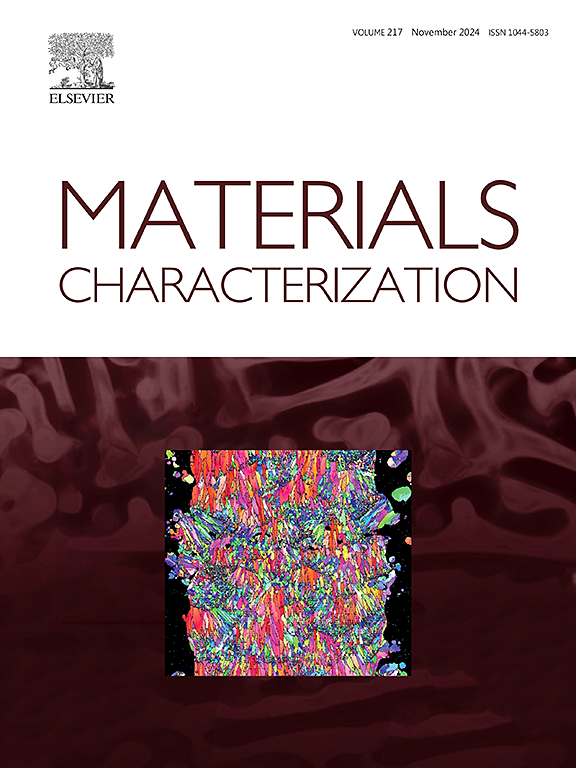微米级夹杂物对再生铝锌镁铜合金板腐蚀行为的影响
IF 4.8
2区 材料科学
Q1 MATERIALS SCIENCE, CHARACTERIZATION & TESTING
引用次数: 0
摘要
重熔铝废料中的夹杂物含量较高,而现代精炼方法并未充分解决这一问题,尤其是在提取微小夹杂物方面。这项研究的目的是确定微米级夹杂物对再生铝-锌-镁-铜合金板腐蚀行为的影响。不同清洁度的铝熔体被重新加工成板材形式,随后进行固溶时效和退火处理。通过电化学检查和微结构表征,该研究评估了夹杂物在含氯的近中性 pH 值环境中对再生铝-锌-镁-铜合金耐腐蚀性的影响。研究结果表明,再生铝中夹杂物的存在主要通过诱导邻近基体的微缺陷和改变晶粒结构来影响耐腐蚀性。晶粒结构的变化对再生板材的电化学性能影响尤为明显,在经过固溶时效处理的试样中,这种影响更为显著。本文章由计算机程序翻译,如有差异,请以英文原文为准。
Effect of micron-sized inclusions on the corrosion behavior of recycled Al-Zn-Mg-Cu alloy sheet
The remelted aluminum scrap exhibits elevated inclusion levels, a condition inadequately addressed by contemporary refining methodologies, particularly with respect to the extraction of diminutive inclusions. The objective of this investigation is to delineate the repercussions of micron-scale inclusions on the corrosion behavior of recycled Al-Zn-Mg-Cu alloy sheets. Aluminum melts, varying in cleanliness, were reprocessed into sheet form and subsequently underwent solution-aging and annealing. Through electrochemical examinations and microstructure characterization, the study assessed the influence of inclusions on the corrosion resistance of the recycled Al-Zn-Mg-Cu alloy within an environment of near-neutral pH containing chlorine. The findings suggest that the presence of inclusions in recycled aluminum predominantly affects corrosion resistance by inducing microdefects in the neighboring matrix and by changing the grain structure. The shift in grain structure is particularly influential on the electrochemical properties of the recycled sheets, with an enhanced effect in the specimens treated with solid solution-aging.
求助全文
通过发布文献求助,成功后即可免费获取论文全文。
去求助
来源期刊

Materials Characterization
工程技术-材料科学:表征与测试
CiteScore
7.60
自引率
8.50%
发文量
746
审稿时长
36 days
期刊介绍:
Materials Characterization features original articles and state-of-the-art reviews on theoretical and practical aspects of the structure and behaviour of materials.
The Journal focuses on all characterization techniques, including all forms of microscopy (light, electron, acoustic, etc.,) and analysis (especially microanalysis and surface analytical techniques). Developments in both this wide range of techniques and their application to the quantification of the microstructure of materials are essential facets of the Journal.
The Journal provides the Materials Scientist/Engineer with up-to-date information on many types of materials with an underlying theme of explaining the behavior of materials using novel approaches. Materials covered by the journal include:
Metals & Alloys
Ceramics
Nanomaterials
Biomedical materials
Optical materials
Composites
Natural Materials.
 求助内容:
求助内容: 应助结果提醒方式:
应助结果提醒方式:


